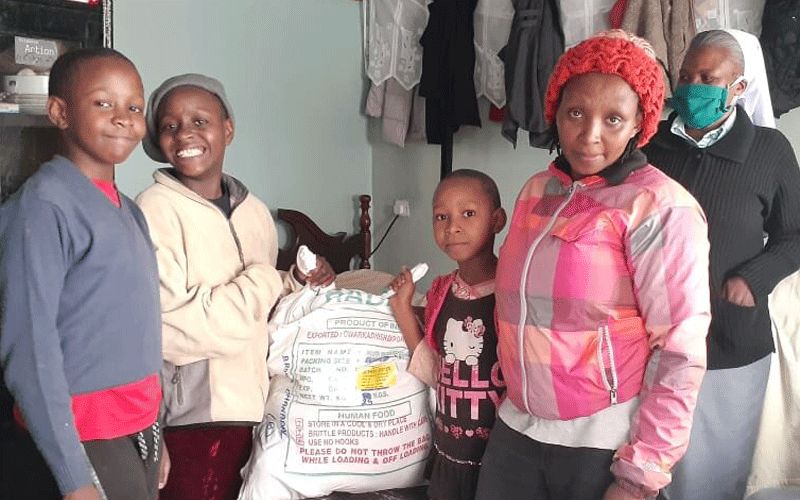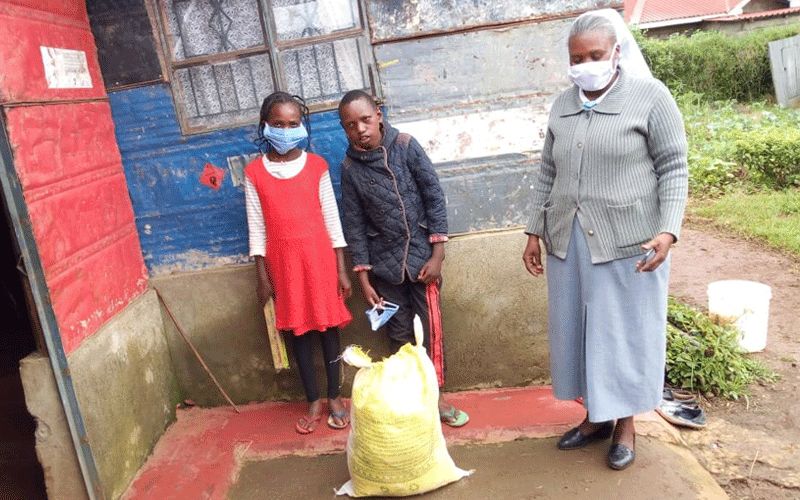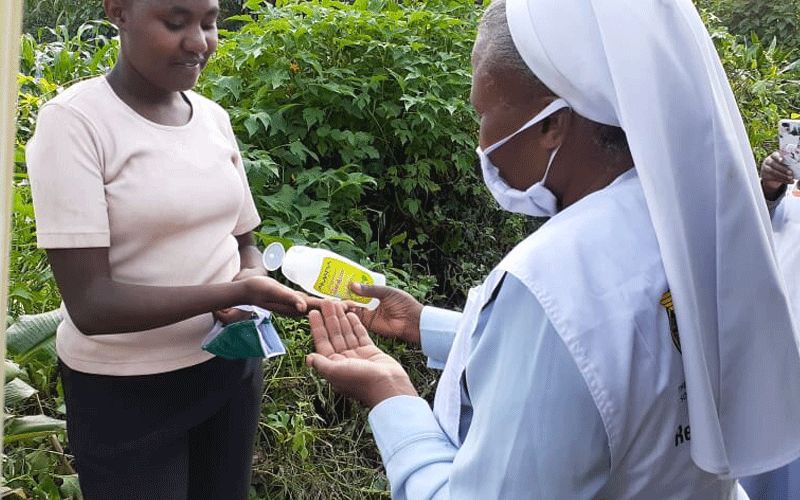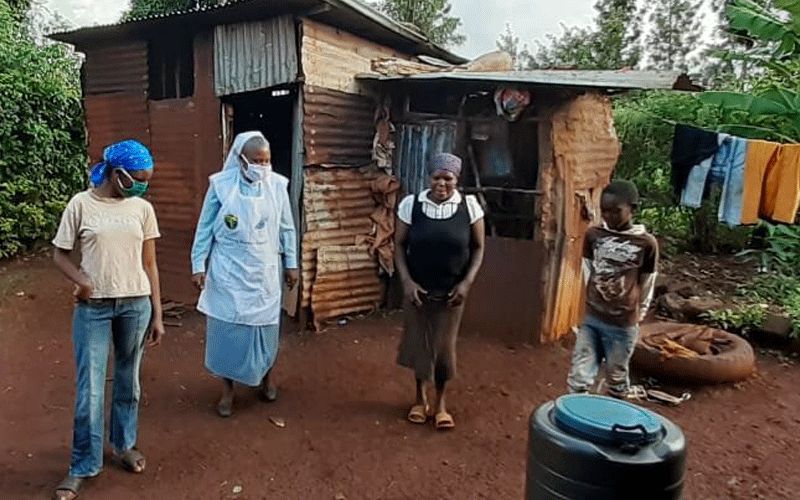Other families, she says, were opposed to the idea of having their daughters back home.
“We have a girl from Kibera. She has three siblings with disabilities. Her mother is also intellectually challenged. When I called them to come and pick their daughter, they said they wouldn’t come,” the ASN nun narrates.
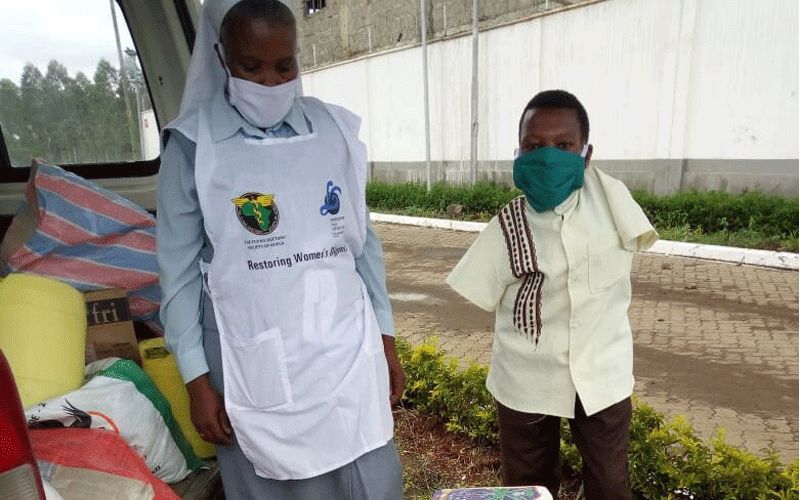
She adds, “I had to force them so they came. And after a lot of convincing, I packed for them a lot of food and promised that I would always check on them. Only then did they leave. I even allowed the family to pick everything they need from a shop nearest to them and we pay the shopkeeper using mobile money.”
The biggest challenge for girls living with disability and their families in the time of COVID-19 is poverty, according to the Catholic nun who has been working at the community-based empowerment facility since January last year.
(Story continues below)
“A majority of them live on daily wages and with their girls around, they can’t go out and work as they used to. All the girls at the facility are special needs cases and they need someone to look after them every time,” the Kenyan-born ASN nun says.
The girls also come last in families that grapple with lack of basic needs such as food. When there is little food to share, children with disabilities do not get any of it.
“I have been to a home where I found my girl watching her siblings eat. When I asked her brother why her sister wasn’t eating anything, he said there was very little food in the house,” Sr. Rose Catherine recounts, adding, “Children with disabilities are treated as second-rate individuals. People only think about them when everybody else has had their fill.”
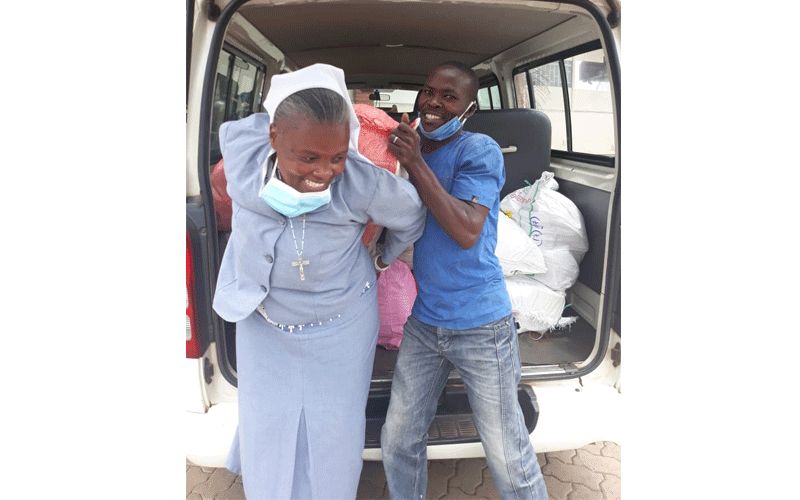
The nun says that some family members also snatch away the toiletries and sanitary towels that the girls are given at the charity facility.
“We really can’t blame family members for helping themselves to the provisions of these girls,” she says, and adds, “It is poverty driving them but we can only hope that they will learn to be more attentive to the needs of their sisters who are more vulnerable.”
The girls, Sr. Rose Catherine says, have intellectual disability and can’t wrap their heads around what COVID-19 means.
“You can’t reason with them concerning any of the safety measures that the government has passed to contain the spread of the virus. In fact, it was difficult to explain to them why we needed to send them home,” she says, adding, “They need a lot of attention from their caregivers back at home because on their own, they are badly exposed to the virus.”
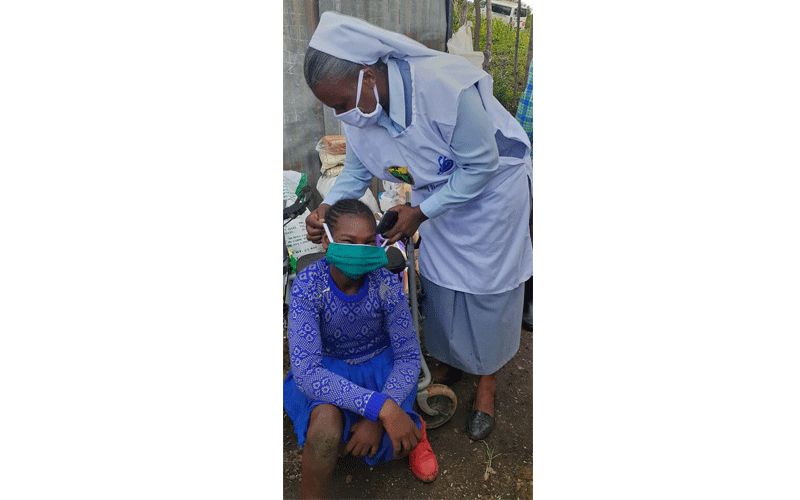
At first, Sr. Rose Catherine had thought of keeping the girls at home but decided against the idea, considering the risks it came with.
“It would have been very difficult for us to control the interaction between the girls and our staff who are all day scholars. And telling the girls to observe social distance wouldn’t have worked since they enjoy embracing each other,” she says.
The ASN nun started getting calls from the parents barely a week after they picked the girls from the centre. Most of the parents and guardians expressed frustrations that they were not able to work with their disabled children around and were asking for help from the ASN.
“I went back to begging barely a week after the girls went back home. Their parents called me saying they didn’t have any food,” she says, adding that with a little help from local donors, she has been able to support families in slums around Nairobi.
Sr. Rose Catherine has also obtained papers from the area Chief that allows her and three other ASN members she works with at the facility to move around even after the Kenyan government banned movement in and outside Nairobi County and other cities where more COVID-19 cases have been reported.
With her team, Sr. Rose Catherine has been to eight home visits in different parts so far and was visiting more homes on the fringes of the capital when she spoke to ACI Africa on Monday, April 27.
“By the start of next week, I will have covered all the homes in Nairobi and I will set off for Nakuru where we have our most needy cases. I am glad that the government issued me with a pass to travel around and to check on our girls,” she says.
On each home visit, families are supplied with foodstuffs to keep them going for up to a month, depending on their level of need. Families are also given masks and sanitizers to keep them safe during the COVID-19 pandemic.
Sr. Rose Catherine reaches out to the girls with disabilities alongside Sr Caroline Abuya, Sr Beatrice Kaari, and Sr. Tabitha Wambui, all members of the Asssumption Sisters of Nairobi.
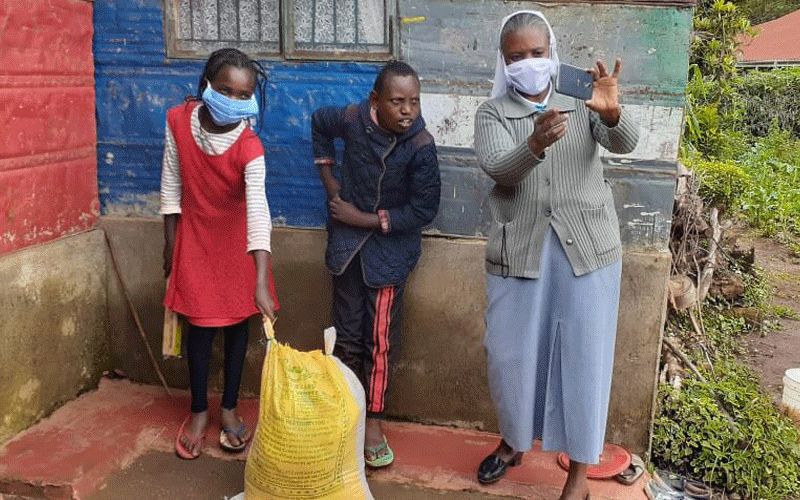
Sr. Rose Catherine and her team at the facility founded nearly 50 years ago by World War II hero Geoffrey Leonard Cheshire, a World War Hero, are living a day at a time as their stores at the facility run dry amid dwindling donations.
“What we have at the moment is only enough to keep the families going for one more week yet we have outreach plans for next week. We can only plan and hope that well-wishers will come on board to touch the lives of these vulnerable girls and their families,” she says.
In the course of her two-week home visits in Nairobi slums, Sr. Rose Catherine says she has already come across and supported boys with disability who, she confirms, are living in appalling conditions.
“In just one week, I have seen three boys with disability living in deplorable conditions and am hoping to start an outreach program for them when we finally defeat COVID-19,” she says.
This story was first published by ACI Africa on 27 April 2020
Agnes Aineah is a Kenyan journalist with a background in digital and newspaper reporting. She holds a Master of Arts in Digital Journalism from the Aga Khan University, Graduate School of Media and Communications and a Bachelor's Degree in Linguistics, Media and Communications from Kenya's Moi University. Agnes currently serves as a journalist for ACI Africa.
